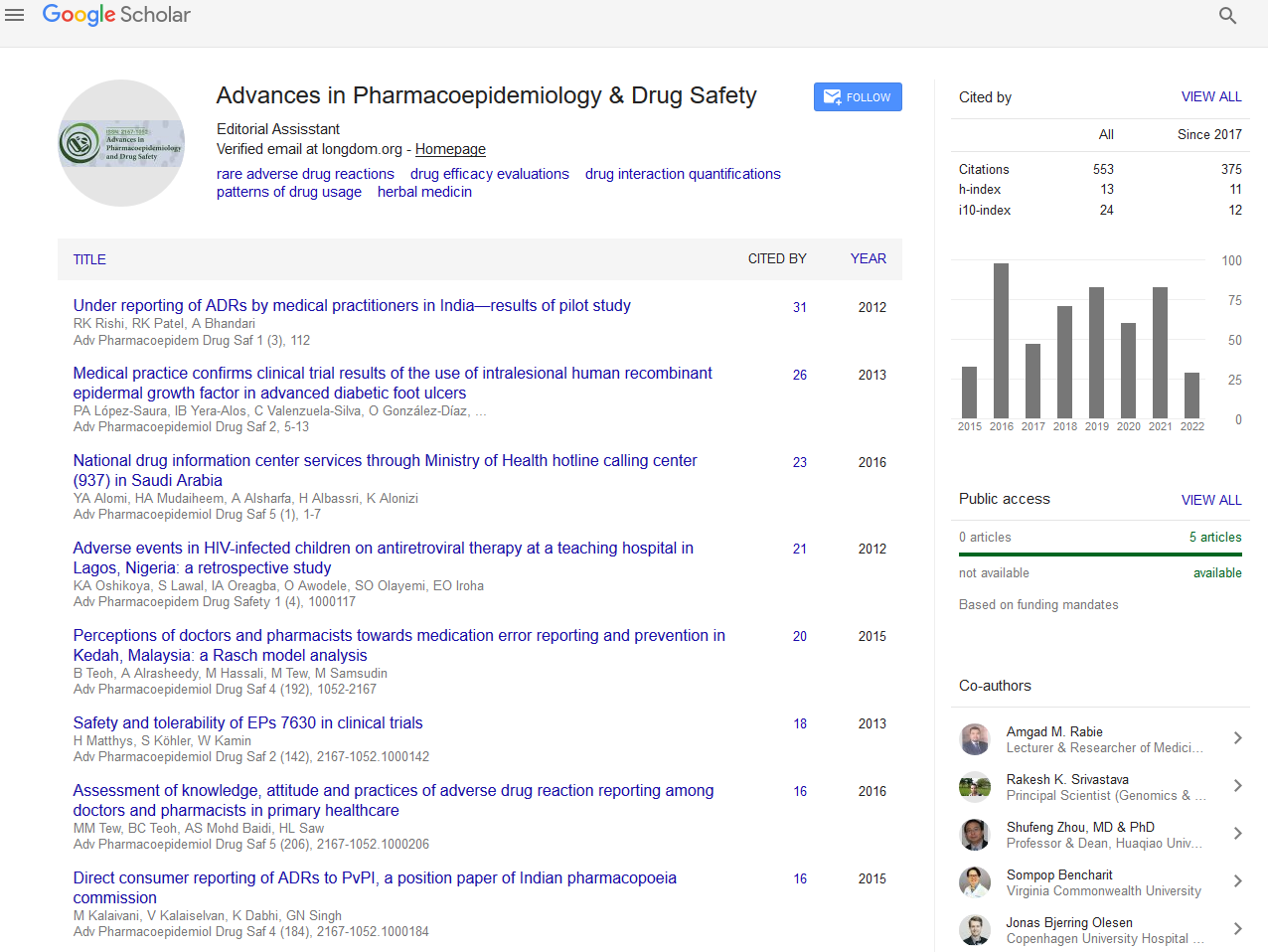Indexed In
- Open J Gate
- Genamics JournalSeek
- Academic Keys
- JournalTOCs
- RefSeek
- Hamdard University
- EBSCO A-Z
- SWB online catalog
- Publons
- Geneva Foundation for Medical Education and Research
- Euro Pub
- Google Scholar
Useful Links
Share This Page
Journal Flyer

Open Access Journals
- Agri and Aquaculture
- Biochemistry
- Bioinformatics & Systems Biology
- Business & Management
- Chemistry
- Clinical Sciences
- Engineering
- Food & Nutrition
- General Science
- Genetics & Molecular Biology
- Immunology & Microbiology
- Medical Sciences
- Neuroscience & Psychology
- Nursing & Health Care
- Pharmaceutical Sciences
Abstract
Hypokalemia and Related Symptoms by Yokukansan in Patients with Behavioral and Psychological Symptoms of Dementia (BPSD): A Retrospective Study of Elderly Inpatients
Mikaho Takeuchi, Saeka Shintani, Akira Takayama, Yoshitaka Yano, Makoto Miura and Hideyuki Motohashi
Yokukansan is a Japanese traditional medicine that has been used for behavioral and psychological symptoms of dementia. Although the efficacy of Yokukansan have been reported, few studies have focused on its adverse effects. In this study, the adverse effects in hospitalized patients treated with Yokukansan were evaluated retrospectively and compared with those listed in the Japanese Adverse Drug Event Report database from the Pharmaceutical and Medical Device Agency. A total of 21 patients who were prescribed Yokukansan at Rakuwakai Otowa Hospital from April 2013 to September 2013 were registered as subjects for this study. Patient profiles, such as age, gender, serum potassium levels, AST and ALT, were evaluated. Serum potassium levels decreased significantly from 4.3 ± 0.6 mEq/L to 3.6 ± 0.4 mEq/L after treatment with Yokukansan, and 61.9% of the patients demonstrated hypokalemia. In addition, the pre-treatment serum potassium levels were associated with the induction of hypokalemia by Yokukansan. The onset date of hypokalemia was varied from 2 to 1,154 days in Otowa data and from 2 to 1,533 days in JADER data. In terms of the number of days to the onset of hypokalemia, there was no significant difference between the Rakuwakai Otowa Hospital and results of Japanese Adverse Drug Event Report database. It is necessary to pay attention to patients during the treatment with Yokukansan, even if treatment period was long term.


